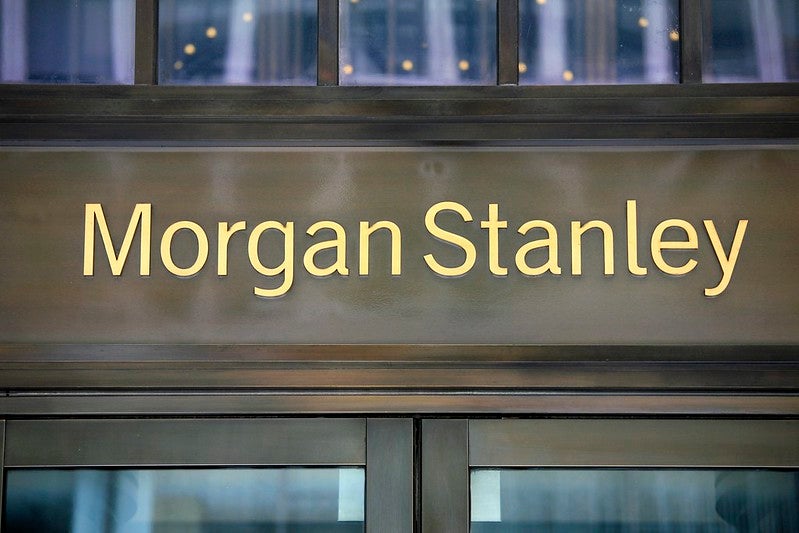
Arbuthnot Latham’s CEO Ian Henderson tells Ronan McCaughey why the London-headquartered boutique private bank’s highly focused approach means it can swiftly understand and serve its clients’ needs. Henderson warns that some smaller wealth managers may become “an endangered species”. He also explains why Arbuthnot Latham’s business strategy involves a three-pillar approach including private banking, commercial banking and specialist finance solutions.
Private Banker International: What’s the state of the UK private banking market?
Ian Henderson (IH): Private banking is currently undergoing dramatic changes and there are two to three trends happening simultaneously. There still remains a significant requirement to provide wealth management services to clients across the UK and internationally, but there seems to be a bifurcation in how those services are provided.
On the one hand, you have the big guys, eg Coutts and Barclays. And on the other hand, there are the small players. The small players are becoming an endangered species in some respects. For example, Duncan Lawrie, a long-established specialist private bank has folded in recent times.
You are also seeing the London branches of international banks progressively disappearing e.g. Butterfield closed down its UK private bank in January 2017.
Harrods as a brand is also no longer providing banking services, so a number of the smaller players are starting to disappear.
How well do you really know your competitors?
Access the most comprehensive Company Profiles on the market, powered by GlobalData. Save hours of research. Gain competitive edge.

Thank you!
Your download email will arrive shortly
Not ready to buy yet? Download a free sample
We are confident about the unique quality of our Company Profiles. However, we want you to make the most beneficial decision for your business, so we offer a free sample that you can download by submitting the below form
By GlobalDataIn my view, there are two weights particularly prompting some private banks to move below the water line: one is the pressure on revenue. There is price sensitivity and trends such as robo advice and passive funds driving revenue streams down.
There is also the onward progression of costs and a lot of those costs are compliance driven. This all means that if businesses do not have sufficient scale, they can become unsustainable.
Even larger businesses among the smaller banks are changing their business models. For example, in February 2017 C. Hoare & Co sold its wealth management business to Cazenove Capital Management, which is the UK wealth manager of Schroders. .That is a significant change in that space.
The big banks face a multitude of challenges too. They always seem to have their eye, not necessarily on the ball because they have other things going on eg. ring-fencing.
We are owner-managed and have a have a significant single shareholder in our chairman, which means we can be isolated from the vagaries of market dynamics, which helps with stability.
Last year was a momentous one for us. In November 2017 Arbuthnot Latham & Co announced it had exceeded £1bn of lending for the first time, continuing an exceptional year of growth for the bank.
This completed a trio of milestones for Arbuthnot Latham, the private, commercial banking and wealth management arm of the Arbuthnot Banking Group PLC.
In March 2017 the bank reached £1bn of deposits, and in May 2017 hit £1bn of assets under management.
PBI: What sets Arbuthnot Latham apart from other private banks?
IH: Arbuthnot has been a private bank since 1833 and became a commercial bank in 2015. We are also adding to the portfolio. But at our heart is private banking and this is the biggest part of the business.
We provide complex credit, straightforward banking, advanced wealth planning and we have a very sophisticated investment management engine.
The one thing that does differentiate us is our service proposition. We deliver on our promises to clients and we deliver quickly.

Above: Arbuthnot Latham’s CEO, Ian Henderson
PBI: As a boutique bank, how does this impact Arbuthnot Latham when dealing with regulatory and compliance requirements?
IH: We do not have the big change management and massive IT teams the bigger banks will have. Therefore we have to be very focused and get it right first time. If I take MiFID II as an example, we broke that down into 12 work streams with an over-arching steering group.
Each of the individual work streams was able to work on their own. Being lean and mean helps keeps us focused.
PBI: How much has MiFID II compliance cost Arbuthnot Latham?
IH: It’s a tough question to answer. Last year we undertook a major transformation of the banking platform. We came off our legacy system onto a brand new Oracle platform.
We did the migration in April–May 2017, so our change agenda was completely focused on that.
[In February 2018, Arbuthnot Latham appointed Andy Rushmer as head of information and cyber security, in a newly created role].For me, my change agenda for probably the first half of 2018 is almost wholly absorbed by regulatory change and I’ve got a growing list of business projects.
I’m hoping that by late Q2 and the second half of 2018 I will get back onto the business agenda of further enhancing our business capabilities.
PBI: Why did Arbuthnot Latham acquire Renaissance Asset Finance?
IH: [In April 2017, Arbuthnot Latham completed the acquisition of 100% of
Renaissance Asset Finance Limited (RAF) from its founders following receipt of regulatory Approval].
RAF does two main things. It provides finance for wheeled assets, which is the bigger part of its business and it provides finance solutions for business critical assets.
Of the wheeled assets it finances, a significant proportion are top-end cars and classic cars. Their clients are typically high net worth, so therefore it is a logical marriage for a private bank.
Not every asset finance company would be a logical fit for a private bank, but Renaissance unequivocally is.
The commercial banking business we have was a direct offshoot of our private banking business. We had private banking clients saying we love your private banking service, but I’m getting a poor service from my commercial bank.
As an entrepreneurial private bank, we said of course we can do that. The second part of the RAF business supports the acquisition of business critical assets. For example, for a factory, it could be machine tools or for a construction company it could be cranes.
The three central parts of our business are private banking, commercial banking and specialist finance.
The private banking part of the business is the main part of the P&L. Its share of the balance sheet is diminishing relative to the commercial banking side.
From a P&L perspective and a staffing perspective, private banking is still the biggest part of the business.
PBI: With low interest rates, digitalisation and the trend towards passive investing, where can private banking add value?
IH: Some clients will always have a need for high-touch relationships. Not everything can be digitised. For something as complex as high end financial services provision, you will always need human engagement.
That is not to say there is not a role for digitalisation. For example, we have increased automation, and online banking. We are also looking at the role of robo-advice within business, and the role of digitalisation more generally.
We like to think we are a 21st century private bank, which is providing classic face-to-face service, but is fully augmented by digitalisation.
PBI: What does it mean in practice when you say Arbuthnot Latham “is looking at the role of robo-advice”?
IH: There is always going to be wealth and wealth generation. I think people are happier using the more mainstream retail banks and premium services within retail banks to a certain level.
But at a point in time, a rubicon is crossed when people have a wealth moment and that is where the private banks come in.
Unlike the big banks, we don’t manufacture any product and we provide genuine holistic advice.
However, what we need to do is recognise that attitudes are changing and we need to be ready for the next generation’s requirements.
PBI: Is Arbuthnot Latham UK-focused?
IH: We have operations in London, Manchester, Exeter, Bristol and Dubai. The Dubai office has been running for over 3 years and has been a great success.
In fact, we have just doubled the foot-print of our office in Dubai and we will add to our banker base in Dubai in 2018.
Because of our property expertise, we are also experiencing increasing demand from the Far East, primarily from UK ex-pats who want to retain a toe-hold in the UK.
We have not decided finally how we are going to address that opportunity. Right now it is reactive, rather than pro-active.
We are also considering whether there is an offshore angle for us in what we do. We don’t currently have an offshore presence and we are now actively considering whether that would make sense for us given the growing internationalisation of our business.
The fastest growing part of our UK private banking business is the international element.








